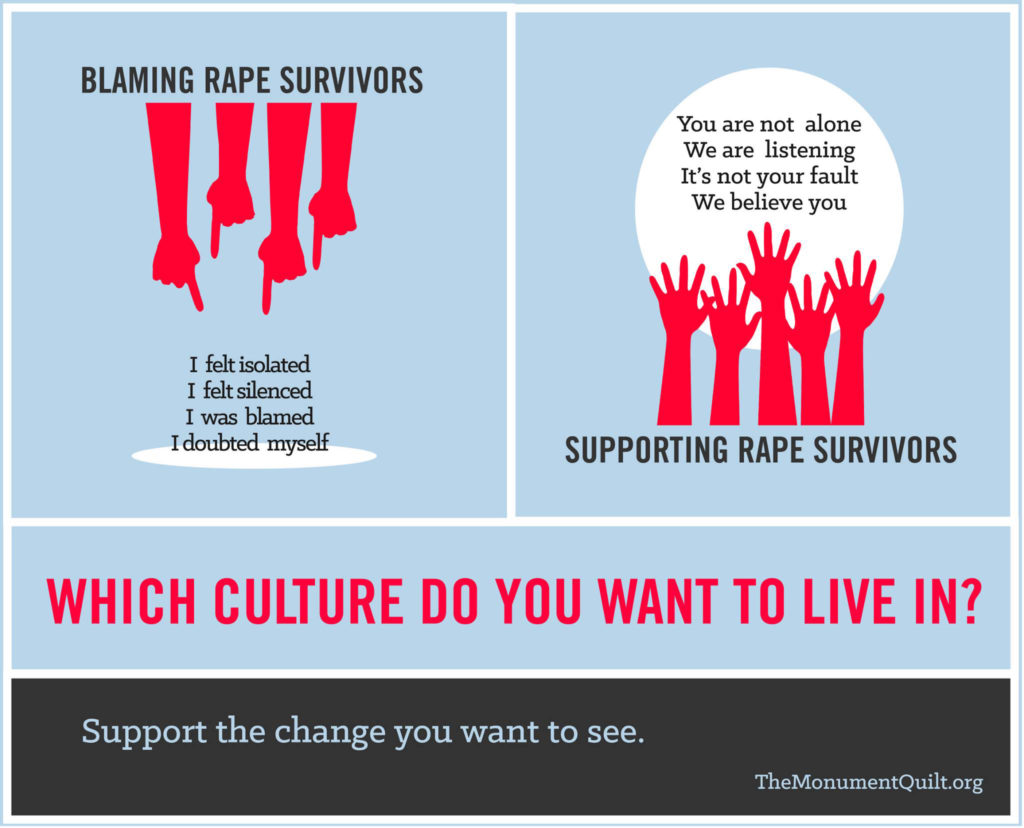In a rape culture, we do not have control over our own bodies.
In a rape culture, people are surrounded with images, language, laws, and other everyday phenomena that validate and perpetuate, rape. Rape culture includes jokes, TV, music, advertising, legal jargon, laws, words and imagery, that make sexual violence and coercion seem so normal that people believe that rape is inevitable.
Rather than viewing the culture of rape as a problem to change, people in a rape culture think about the persistence of rape as “just the way things are.”
Rape culture and white supremacy have historically stood on a foundational belief in white male superiority, enforced through conquest, domination, and control.
In contrast, a culture of consent rests on an understanding of many perspectives and experiences. A culture of consent is enacted through self-reflection and self-knowledge; cooperation, collectivity and sharing; critical inquiry; a commitment to accessibility; honoring play and joy; and communication and responsiveness.

